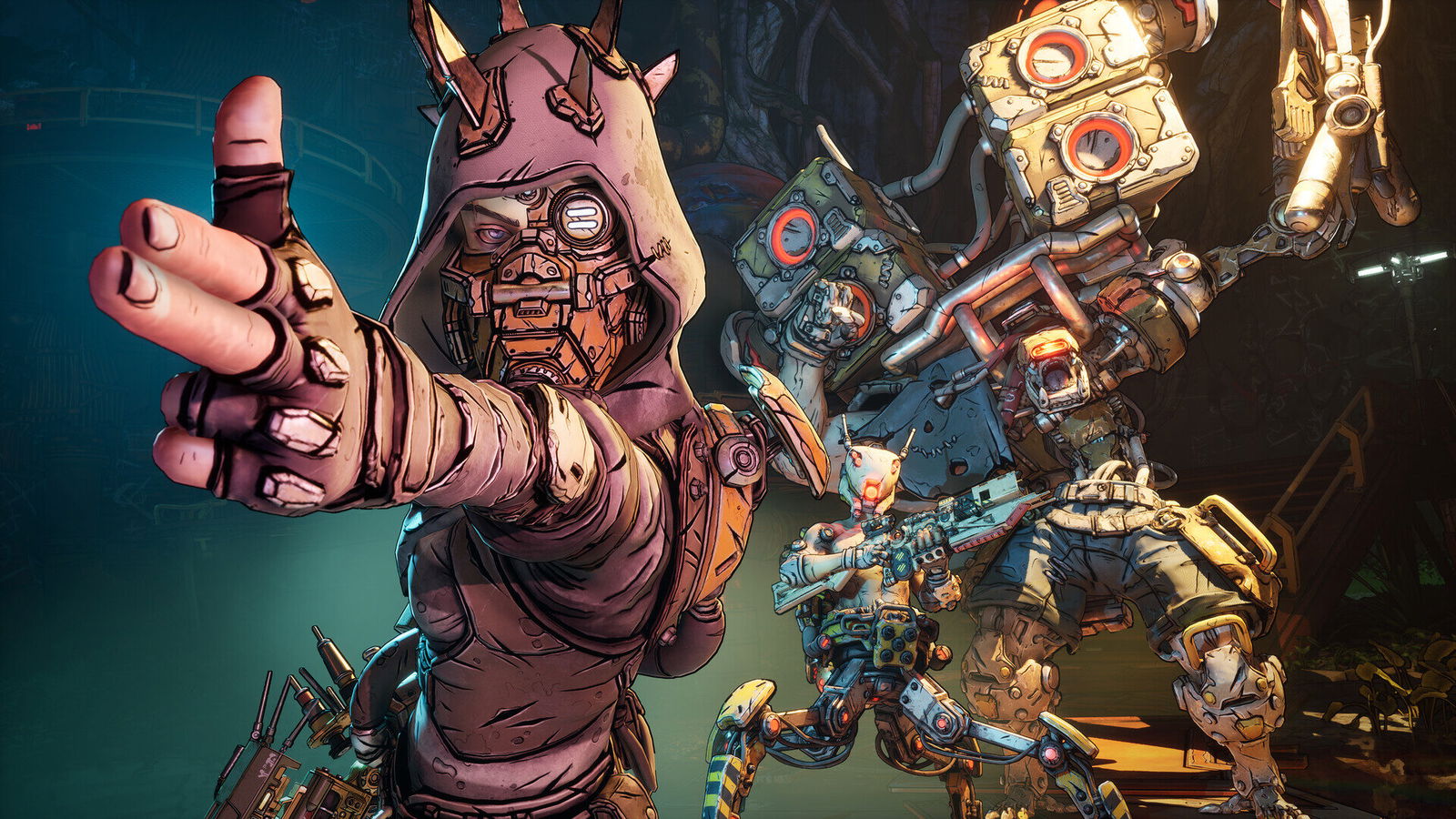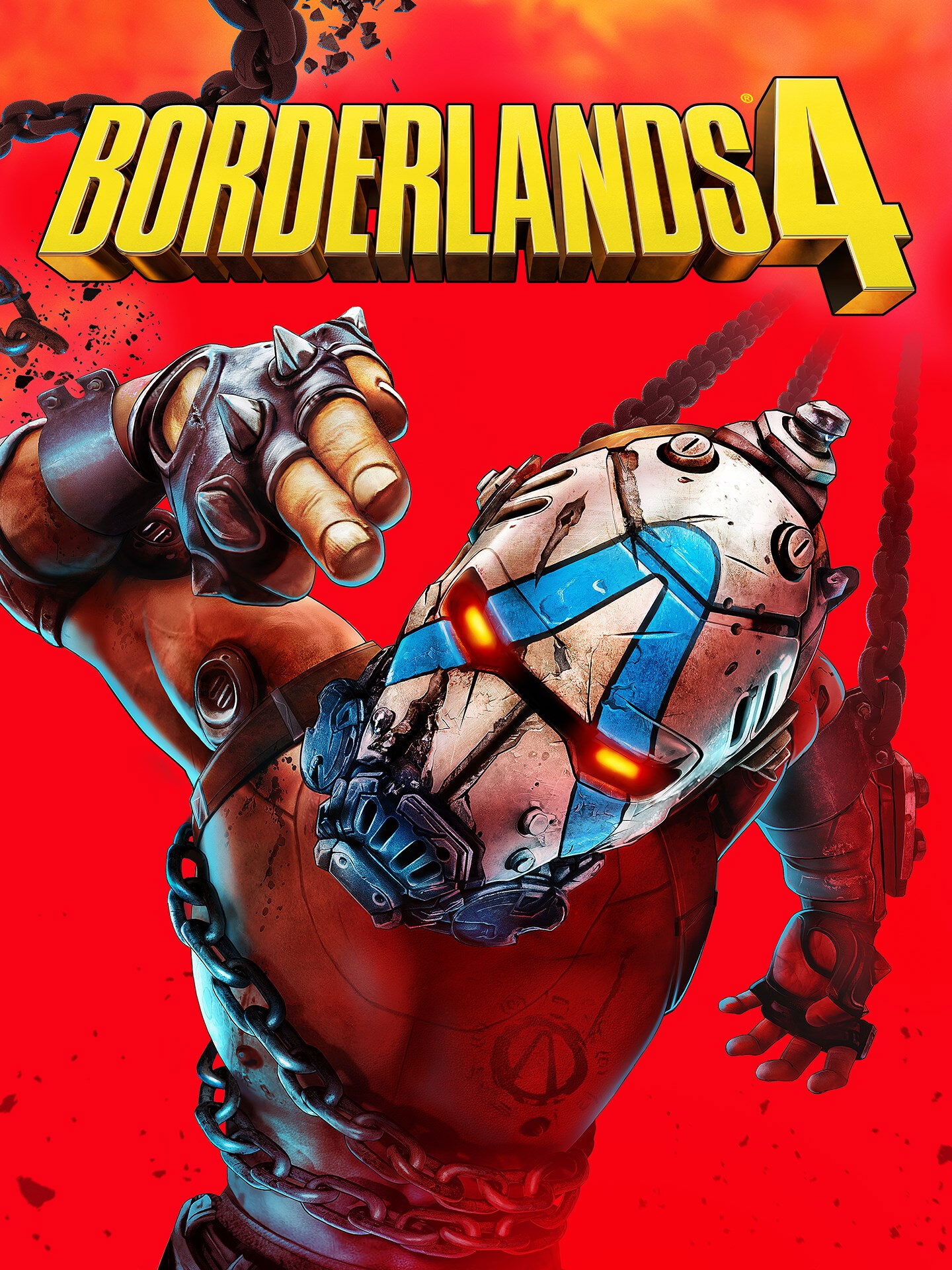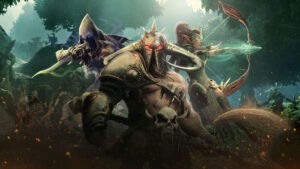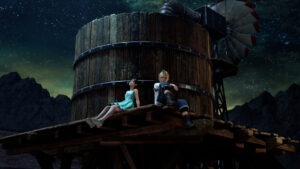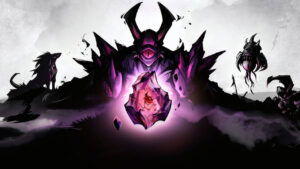With a franchise like Borderlands hitting its fifteenth anniversary and sixth game, there is always the worry that the series has run its course. The longer it goes, the more tiresome the repeated characters or jokes, gameplay, and writing can be. At some point, you start wondering if they can actually keep surprising you, or if they’re just coasting on old ideas with a new coat of paint. With Borderlands 3, I’ll admit, I was starting to worry we’d hit that wall. The guns still felt good, the loot loop was starting to become a problem with the balancing of drops seemingly way off, and the chaos was pure Borderlands, but something felt off about it.
The pacing dragged, the jokes didn’t always land, and were overly cringy, and the villains were the weakest of the bunch we have had. They never once felt like they earned the attention they demanded. I had fun playing it, really, but it didn’t feel like the step forward the series needed. It was loud, sure, but not sharp. Big, but not smart. Fun, but not memorable. And that’s why Borderlands 4 feels like such a shock to the system.
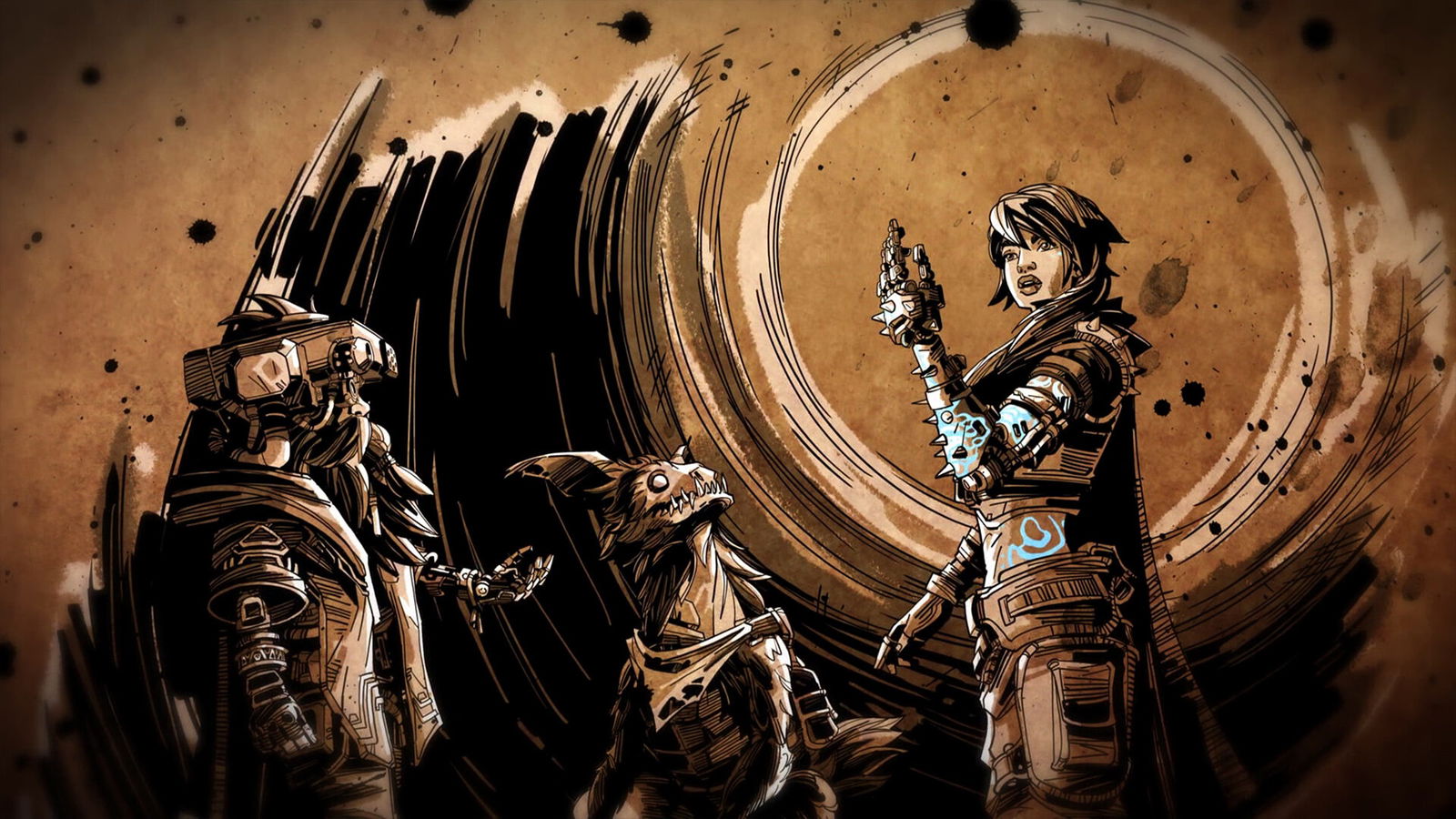
This isn’t just another round of shoot-loot-level-repeat. This is Borderlands reborn. A game that understands where it stumbled, where it soared, and where it needed to break through. It’s bigger, brighter, funnier, and somehow more grounded, all while never letting go of the lunacy that made the series famous in the first place. I’ve played every Borderlands since the start, and I can say without hesitation: this is the best the series has ever been.
The foundation is the story, and this time it’s a world-shaker. Literally. At the end of Borderlands 3, Lilith teleported Pandora’s moon, Elpis, away before it could smash into the planet. That much we knew. What we didn’t know was where she sent it. Borderlands 4 gives us the answer: Kairos. Cloaked for centuries and ruled under a dictator known as the Timekeeper. When Elpis slammed into orbit, it shattered the veil that hid Kairos from the galaxy. This exposed it to the rest of the universe and all the problems that come with it. Six years later, that chaos has turned into full-blown civil uprisings, as factions rise against the Timekeeper’s regime and the cracks in his control widen.
That’s where the new Vault Hunters come in. Their mission isn’t just to chase loot and uncover Vaults—though that’s obviously still a massive part of it—but to take the fight to the Timekeeper, to break his stranglehold over Kairos and finally give the planet a chance at freedom.
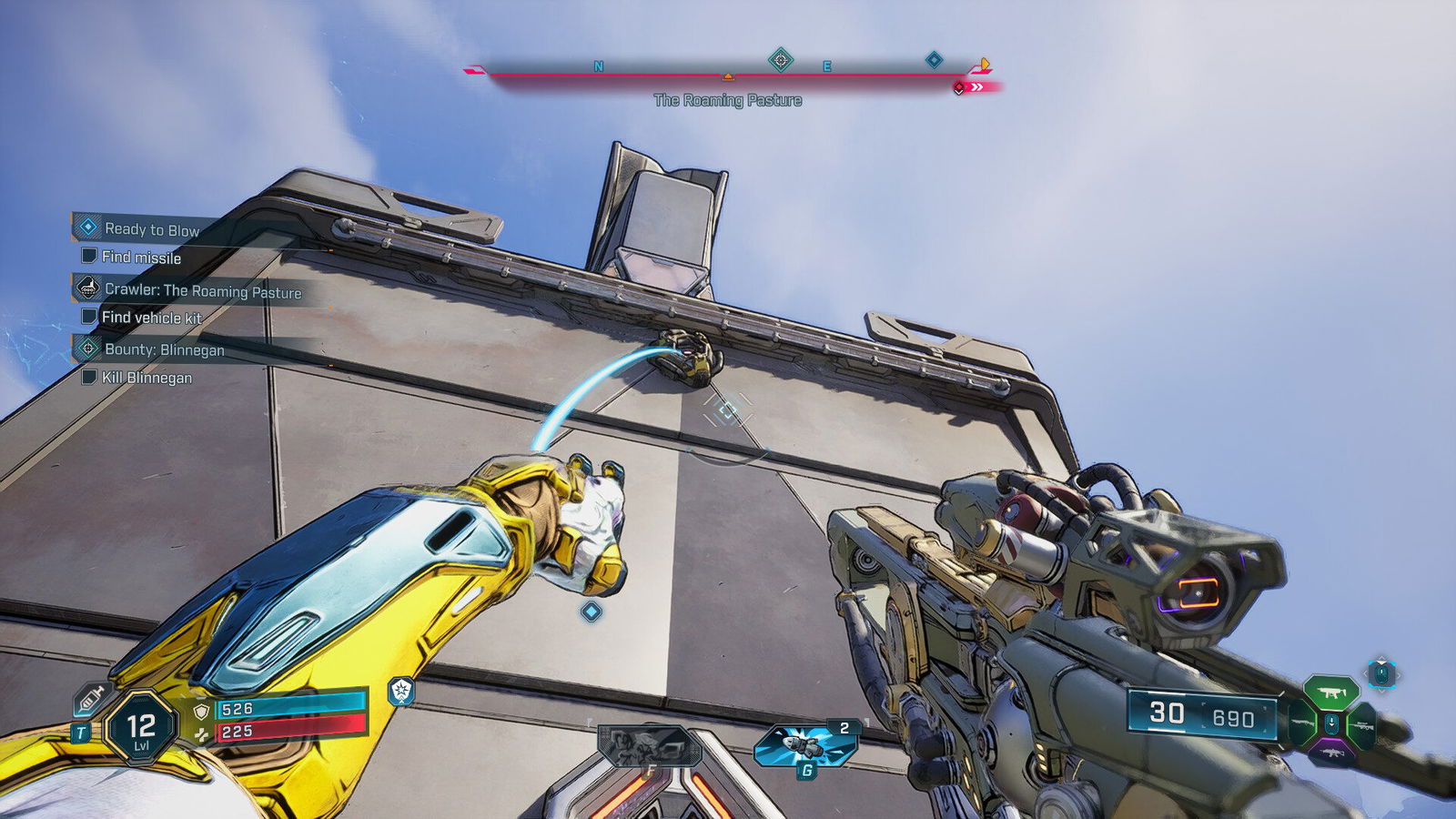
It’s a setup that immediately feels richer than anything the series has done since Handsome Jack. The stakes are planetary, yes, but they’re also deeply human. You see the rebellion, you hear the desperation in NPC voices, you feel the way Kairos is tearing itself apart under the pressure. And above it all, you’ve got a villain who actually makes the struggle matter.
That’s been the Achilles’ heel of the franchise since Borderlands 2. Handsome Jack worked because he was funny and terrifying at the same time. He managed to make you laugh while also doing heinous villain things like bombing a whole town, enslaving his own daughter, or killing Tiny Tina’s parents. But he also ruined villains for the series for a bit as the Calypso Twins in 3 tried to capture that same energy, but they never even came close. More internet parody than actual threat. Every time they showed up, it felt like they were elbowing you in the ribs, trying to get you to laugh at their streamer shtick. They weren’t menacing, they weren’t clever, they weren’t even entertaining. They dragged the whole experience down.
“But the real reason Borderlands 4 stands above its predecessors is respect. It respects the audience enough not to drown us in jokes at the expense of the story…”
The Timekeeper is the polar opposite. He doesn’t scream at you, he doesn’t posture like a kid on a Twitch stream, and he doesn’t exist just to be a delivery system for memes. He’s calm. Controlled. Authoritarian in a way that chills you. His rule over Kairos feels absolute, and when you see it starting to slip, it’s satisfying not because the game tells you to feel that way, but because you believe in the fight. Every speech he makes has weight. Every appearance is loaded with menace. He’s not the joke, he’s the reason the jokes land because he anchors the chaos with actual stakes.
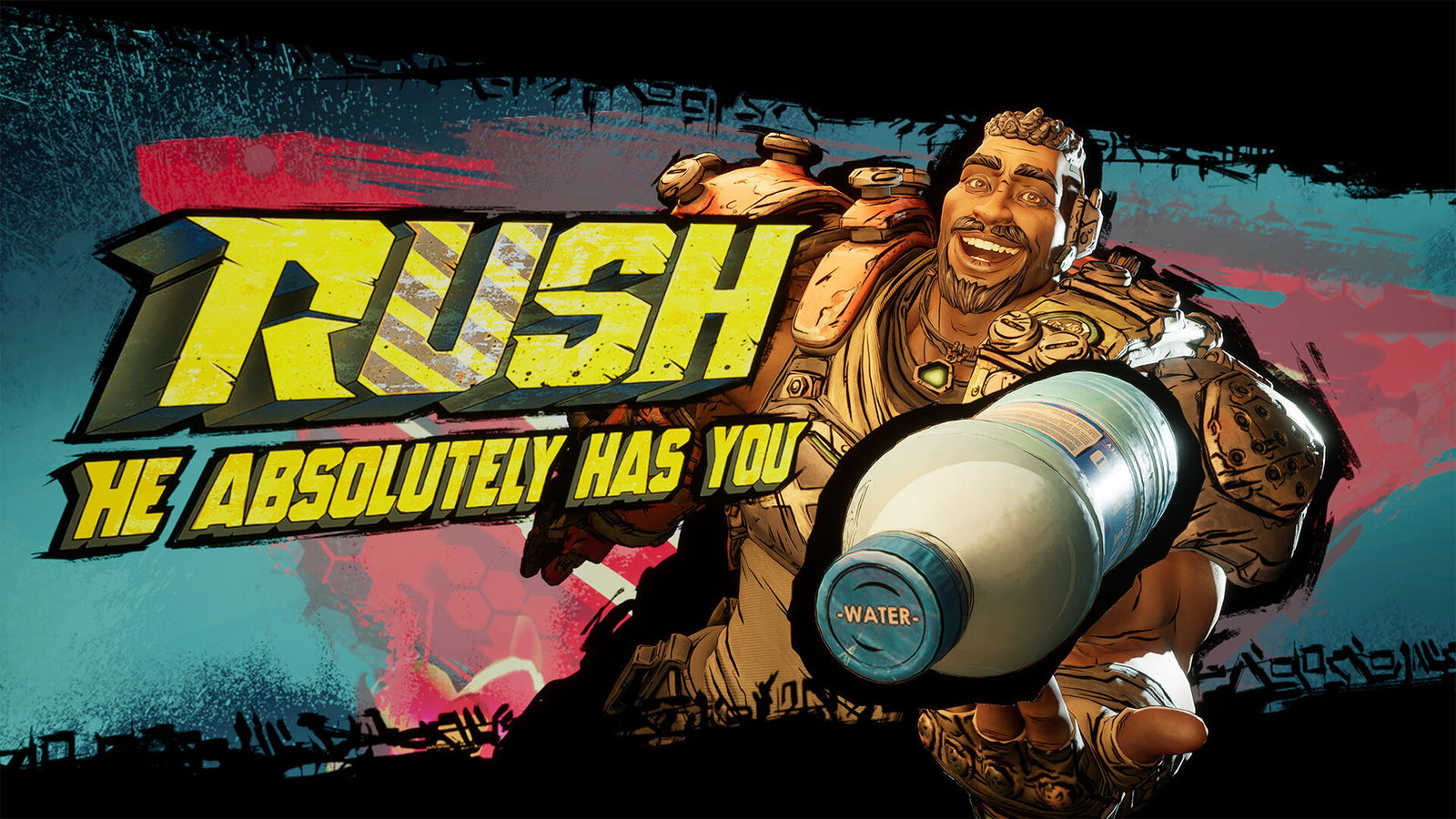
And that’s what sets Borderlands 4 apart. The writing is sharper than it’s ever been. The humour is still constant, still absurd, still gleefully immature at times, but it knows when to pull back. It knows when to let a moment breathe, when to hit you with a genuine gut-punch of a reveal, and when to fire off a one-liner that makes you laugh so hard you nearly drop your controller. I found myself chuckling constantly, but I also found myself stunned into silence more than once. It’s that balance, the willingness to take itself seriously just enough, that makes the comedy work better than ever.
The new Vault Hunters are part of that improvement, too. 3’s cast always felt like archetypes first and people second. Here, they’re fleshed out from the start. Their personalities shine through in dialogue, their backstories carry weight, and their motivations tie naturally into the fight for Kairos. When you pick one, it doesn’t just feel like choosing a build, it feels like choosing a perspective, a voice you actually want to hear over the course of dozens of hours.
That’s not to say Gearbox abandoned the series’ legacy. Some of the series’ past Vault Hunters return as NPCs, but it’s done with the restraint the series has badly needed. They’re not shoved in your face for a cheap pop or turned into endless fan service cameos. They feel like part of the world, showing up naturally, adding depth, and then letting the new cast carry the torch. It’s nostalgic, yes, but it’s also smart.
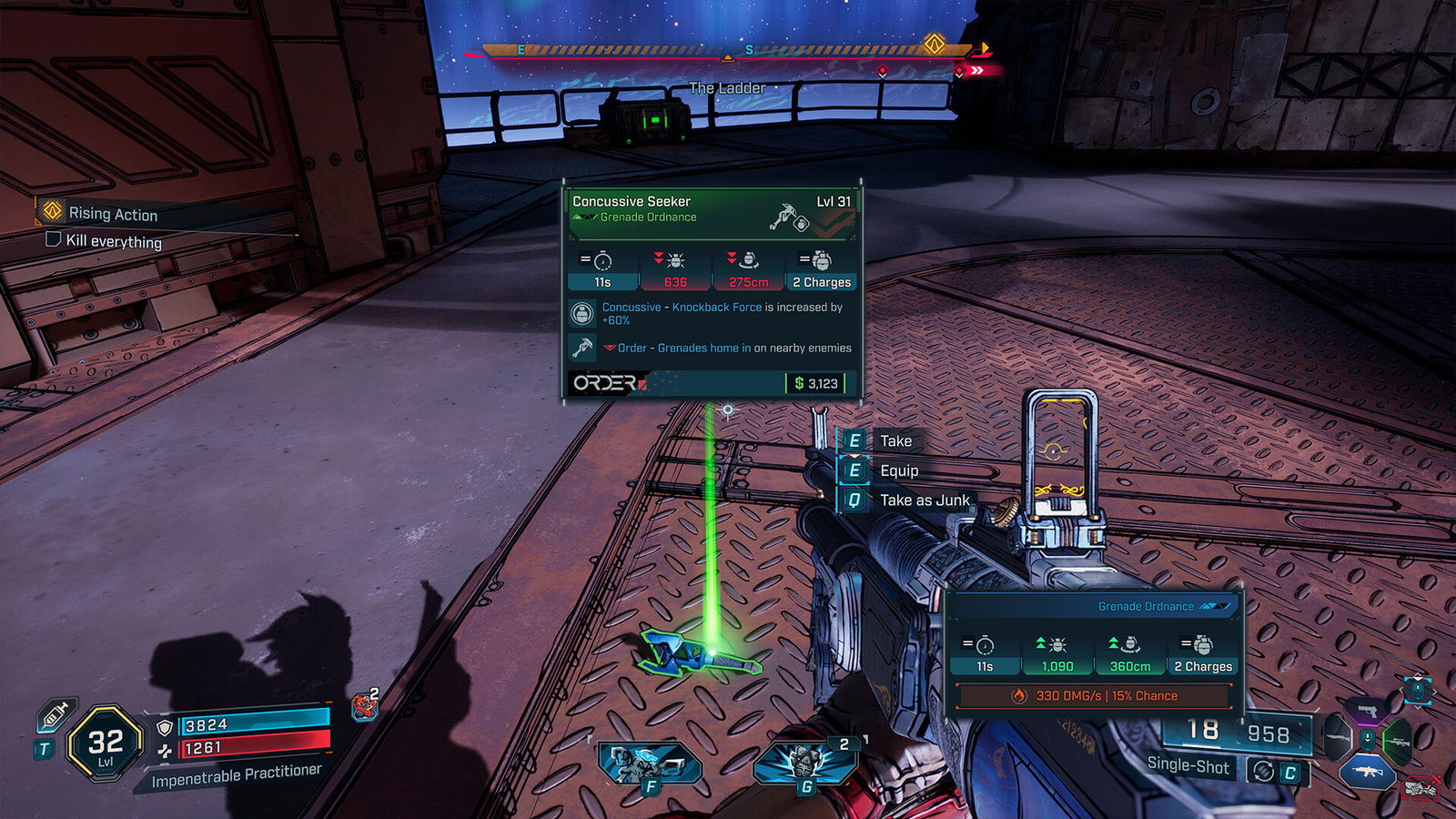
Gameplay is as polished as it’s ever been. Shooting feels tighter than ever, weapons feel more distinct, and somehow, each gun, even from the same manufacturer, feels wildly different, and the addition of the grapple hook completely changes traversal. For a series that’s always thrived on its gunplay, it’s wild how much joy I got just from moving. Swinging into combat, scaling vertical arenas, and discovering hidden loot tucked into places I would’ve never reached otherwise, it all adds a layer that the series was missing. Side missions and dungeons, in particular, take full advantage of it, layering in platforming challenges that feel fresh and rewarding.
And then there are the guns. Borderlands has always prided itself on offering “bazillions,” but what matters here is that each one feels unique. The new licensed parts system makes every weapon feel unique. Being able to have a Jakobs gun with some Maliwan properties makes every single gun feel different. It’s a system that encourages experimentation, rewarding you for tinkering and tailoring your arsenal until it fits your playstyle like a glove. Every loot drop is exciting because you’re not just looking at numbers, you’re looking at possibilities in a way we’ve never seen before.
By the time I hit level 50 on my first character, I wasn’t close to done. I’ve already started a second, cruising toward the cap, because the post-game content is so compelling. The new Vaults are brutal, sprawling challenges that demand coordination, strategy, and builds that can stand up to punishment. They’re not throwaway side content; they feel like essential parts of the experience, rewarding in a way that makes every wipe worth it.
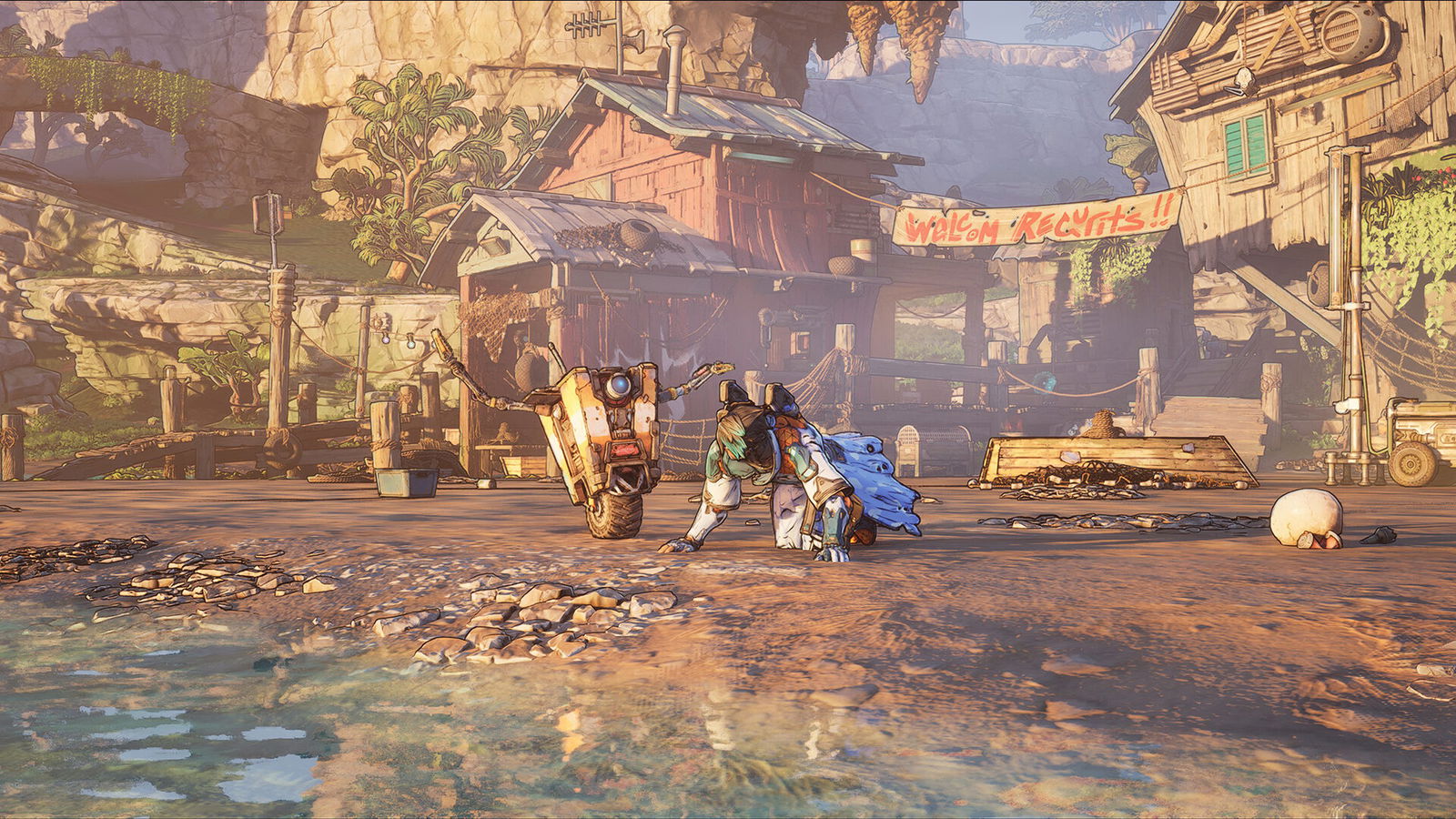
Kairos itself is a character. Borderlands 4 is the first in the series that embraces an open-world structure, and it’s stunning. The landscapes are varied and alive, from deserts scarred by rebellion to cities buzzing with unrest to wilderness zones crawling with dangerous wildlife. Driving across it is pure joy, frantic and freeing in the best possible way. Fast travel is there if you want it, but I found myself skipping it more often than not, choosing instead to barrel across the planet in my vehicle, soaking in the chaos. Every trip felt like an adventure, every horizon a promise of something strange and wonderful.
The minor touches go a long way, too. Being able to skip the intro when rolling a new character is a simple change, but it instantly makes replaying more inviting. The UI has been cleaned up, making inventory management faster and smoother. Even the audio design stands out, with guns that roar and environments that hum with detail.
“Borderlands 4 is the first in the series that embraces an open-world structure, and it’s stunning.”
And, of course, Borderlands is always best with friends. 4’s co-op is as good as ever, letting you tear through missions, crack jokes, and scrape each other off the ground in the middle of impossible firefights. It’s chaotic, loud, and endlessly fun, the kind of co-op experience few games manage to sustain for dozens of hours.
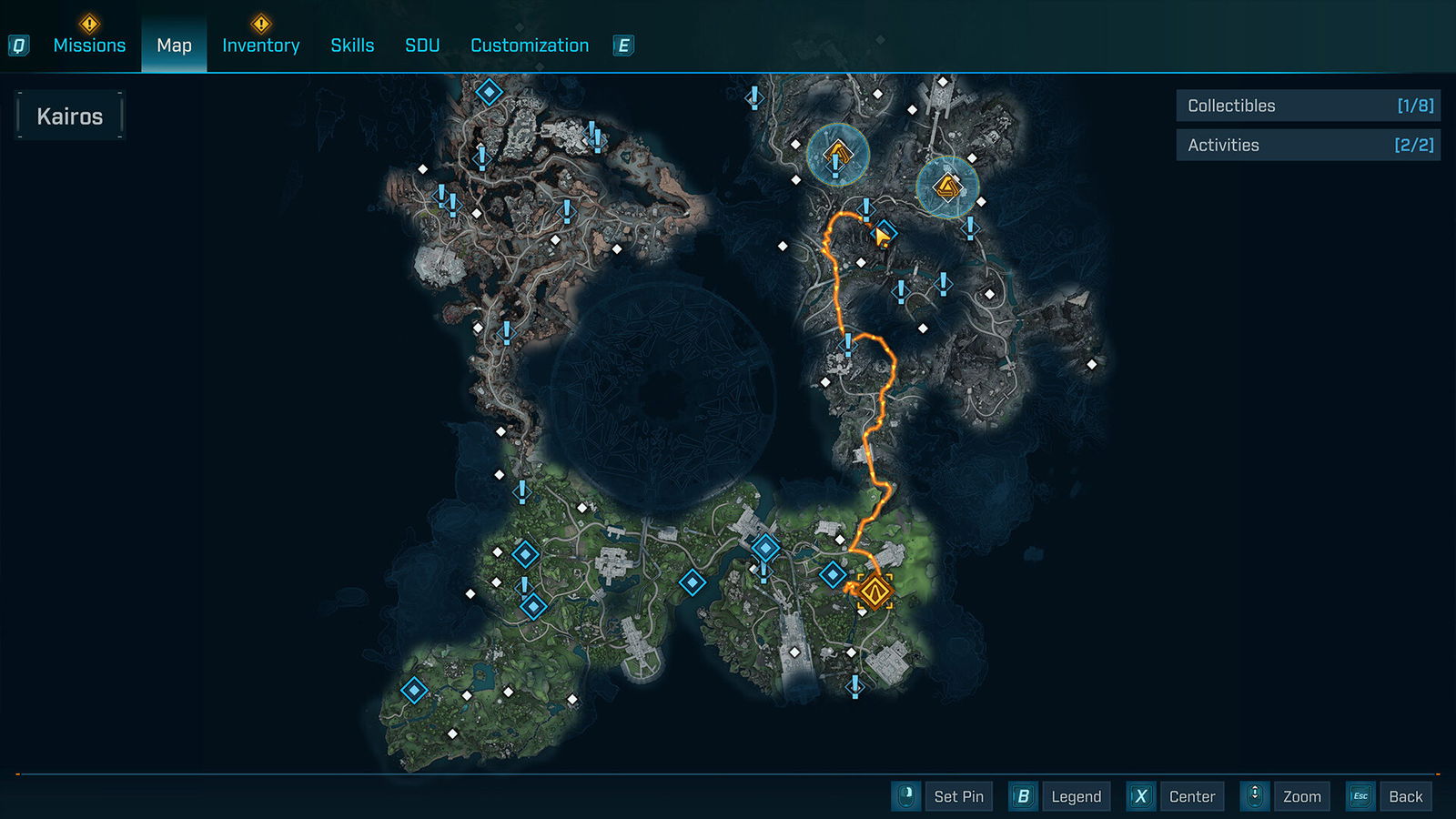
But the real reason Borderlands 4 stands above its predecessors is respect. It respects the audience enough not to drown us in jokes at the expense of the story. It respects the legacy enough to bring back old faces without cheap pandering. It respects the gameplay loop enough to refine it without overcomplicating it. And it respects the villain enough to finally give us someone worth fighting.
After the Calypso Twins, who felt like the embodiment of every bad instinct the series has ever had, the Timekeeper is a revelation. He’s not Handsome Jack—he’s his own creation—but he’s cut from the same cloth of villains who matter. The kind you’ll remember. The kind who makes the fight feel urgent. The kind who makes every victory worth savouring.
This is Borderlands perfected. A game that takes the foundation of the series and elevates it in every conceivable way. Funnier, smarter, richer, more thrilling, and absolutely overflowing with reasons to keep playing long after the credits roll.
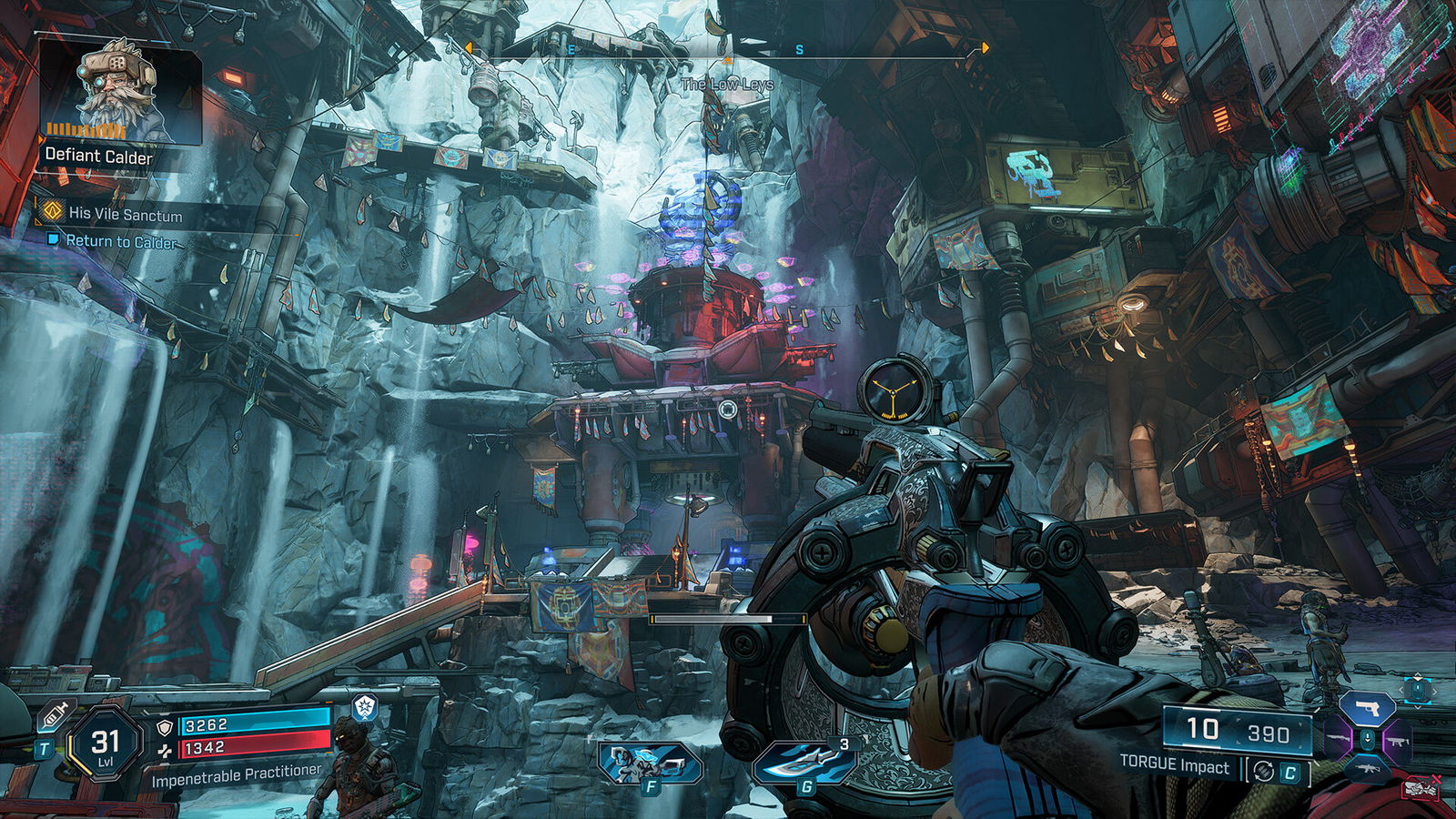
When I look back on the series, I’ll remember the first time I opened a red chest in 1. I’ll remember Handsome Jack’s taunts in 2. I’ll remember the Calypsos in 3, for better or worse. And now, I’ll remember standing on Kairos, looking up at Elpis hanging broken in the sky, feeling the weight of the fight ahead and the thrill of knowing I was about to dive in.
Borderlands is back, and it’s never been better.
